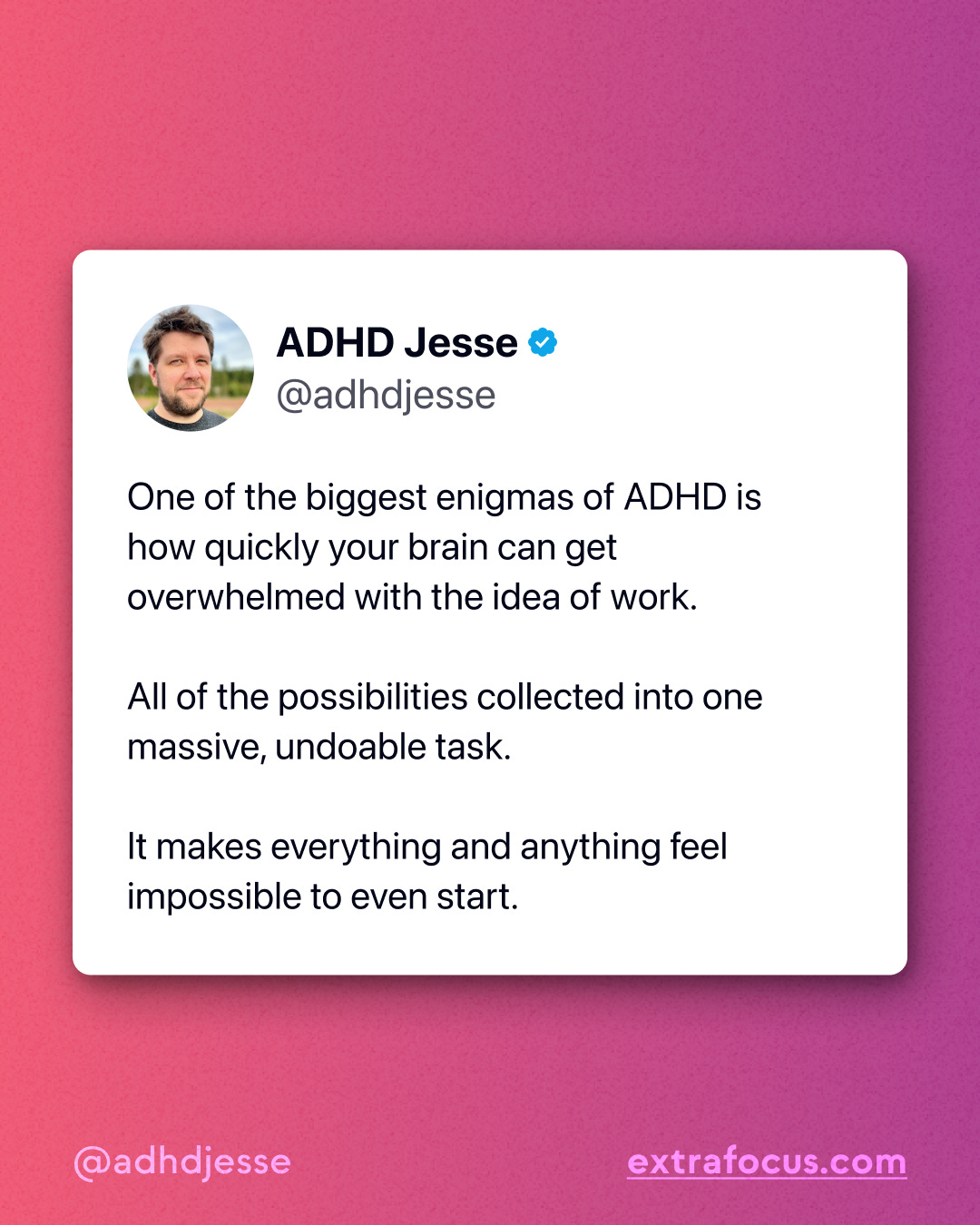ADHD Myths: ADHD Isn't Real
Hey friend—this newsletter is supported by readers like you. If you love it or find value from it, consider becoming a paid supporter! You’ll unlock every article in the archive and gain full access to the Member Resource Hub. While many myths about ADHD tend to distort the realities, one myth simply denies the existence of ADHD altogether. This is often rooted in a number of issues:
But ADHD actually has a long history of evidence backing it up. There have been major breakthroughs in recent years, but it’s hardly a made-up condition. It was actually documented as far back as 1798 (!!) by Sir Alexander Crichton, who referred to a condition as “the incapacity of attending with a necessary degree of constancy to any one object.”¹ While this phrase doesn’t quite line up with our modern understanding of ADHD—I can hyperfocus on on object to an extreme “degree of constancy” for example—it shows that this is hardly some newly invented condition. Just see if this paragraph from Crichton sounds familiar at all, remembering that this was written over two hundred years ago (emphasis added):
I mean, come on! This could’ve practically been written by me, if I used words like “propriety” and “inasmuch” more often. This early research was later expanded upon in the early-to-mid 1900s, and in recent decades, there has been an explosion of new research on ADHD. In fact, the American Medical Association said that ADHD is “one of the best-researched disorders in medicine, and the overall data on its validity are far more compelling than for most mental disorders and even for many medical conditions.”² “[ADHD is] one of the best-researched disorders in medicine, and the overall data on its validity are far more compelling than for most mental disorders and even for many medical conditions.” In addition to all this is just the confirmation and validation that many of us have felt in the past few years as the ADHD community has grown through social media, leading many of us to feel seen and validated and understood for maybe the first time in our lives. We know that ADHD is real because we’ve found the people that live our shared experience, the people that understand what it’s like to stare at the task you keep meaning to do and know the frustration when we notice it again weeks later still waiting to be done, that have learned to laugh at our mistakes to avoid crying about them happening yet again, that know the unique thrill and joy of a hyperfocus session gone right getting more accomplished in an afternoon than seems possible, and all the other unique ups and downs and lefts and rights that come with living ADHD. Have you encountered this myth about ADHD? How has it affected your life or the lives of people you know? Share your thoughts and experiences in the comments below. Stay curious, P.S. I’m really excited to be part of a group proposing an ADHD panel for next year’s SXSW and would love your support! I’m part of the “How to Create ADHD-Supportive Workplaces to Benefit Everyone” panel, and there’s a second ADHD panel being proposed called “Creating and ADHD: Navigating Rocky Roads to Completion” so I encourage you to vote for both! You can see more details here, and follow each link to create a quick account and cast your votes. You can vote for each proposal once. Thanks! ADHD Myths Series1 Lange, Klaus W et al. “The history of attention deficit hyperactivity disorder.” Attention deficit and hyperactivity disorders vol. 2,4 (2010): 241-55. doi:10.1007/s12402-010-0045-8 2 Goldman, L S et al. “Diagnosis and treatment of attention-deficit/hyperactivity disorder in children and adolescents. Council on Scientific Affairs, American Medical Association.” JAMA vol. 279,14 (1998): 1100-7. doi:10.1001/jama.279.14.1100 This newsletter is supported by readers like you! Become a paid supporter to unlock every article in the archive and gain full access to the Member Resource Hub. |
Similar newsletters
There are other similar shared emails that you might be interested in:



